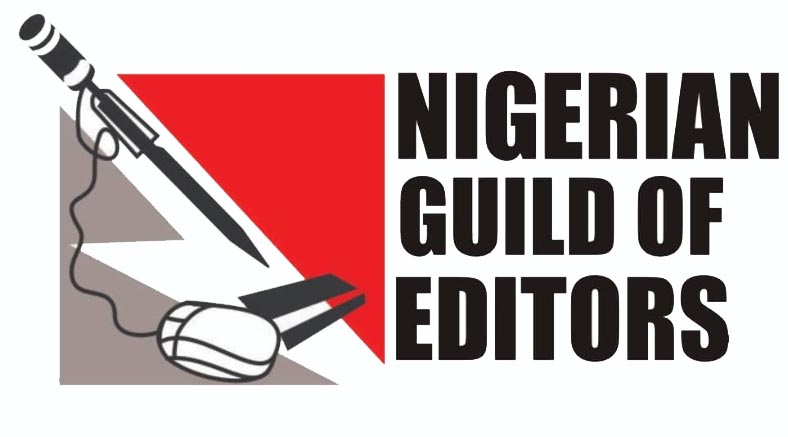By Lanre Idowu
Sixty years ago, on Saturday, May 20, 1961, the Nigerian Guild of Editors was born, a child of great hope at the old National Press Club located then at Abibu Oki in the heart of Lagos.
It was named the Guild of Newspaper Editors of Nigeria, designed to serve as an exclusive club of professional news managers where editors as the ultimate gatekeepers on media content could come together seasonally to interrogate issues of professional media practice unfettered by labour matters.
- KEDCO gets taskforce to enforce collection, check meter bypass
- Fight against bandits, kidnappers: Gov Sule lauds security agencies
The editors had been effectively sidelined from the Nigeria Union of Journalists, which predated the Guild by six years, on account that as management staff, they could not be trusted to effectively represent the interests of the rank and file journalists.
So in response to the reverse discrimination of the NUJ, the need to instill professional guidance, and protect their interests in light of the unfolding socio-political developments in the early days of independent Nigeria, the Guild emerged to occupy the strategic middle ground of professional managers between owners and the general rank of journalists.
Lateef Jakande (1929-2021) of the Nigerian Tribune was its first founding president. His cabinet had the likes of Babatunde Jose (1925-2008) of the Daily Times as the vice president, Abiodun Aloba (1921-2001) of the Morning Post as the secretary, and Nelson Ottah of the Drum as the assistant secretary.
The Guild was established to advance the interests of the profession, deepen editors’ relationships with their various publics ranging from the media itself, to governments, professional and trade associations and other groups that make up civil society. It was to be a proactive agent of development to anticipate problems and tackle them, and clarify issues before they got out of hand.
The promise of its birth was soon tested by the crisis that erupted in the early life of the First Republic. A good number of the editors became casualties of the cat-and-mouse politics of the era. Jakande was tried alongside Chief Obafemi Awolowo for Treasonable Felony and was jailed in 1963. That same year, Jose was appointed managing director of the Daily Times, and had become, technically, ineligible to continue on the executive of the Guild as only defacto editors could hold executive office. By that time also, Aloba was fighting for his job as the Post was enmeshed in a probe into its finances. With the leadership of the Guild challenged on several fronts, the Guild soon lost direction and could not serve as a moral compass.
The Guild was to undergo a name change to accommodate the electronic media, which added to its problems of identity in subsequent years. The Guild soldiered on under military rule, 1966-1979, playing an active role in the struggle for press freedom and enhanced respectability for journalism and journalists. In the light of its membership expansion, and the introduction of assorted job titles, the Guild has continued to grapple with the question of who is an editor. This issue featured in the crisis that attended the Minna convention of 1982. Along with capitulation to partisan political interests of the day arising from creeping geopolitical and sectional interests into the affairs of the Guild, the Guild slid into the doldrums for six years before it was resuscitated in 1988. The membership question resurfaced in 2008 and 2017. Its ghost is yet to be laid to rest.
In nine days Nigerian editors will meet in Kano to elect a new team to pilot its affairs with major issues of membership, funding yet to be successfully resolved. In light of major developments in the industry, not the least digital publishing, and redefinition of the shape and practice of the business of editing, and Nigeria’s unfolding political developments, a lot is expected from the body to give quality leadership.
For now, it is meet and proper to congratulate the industry for keeping the Guild relevant till now. Tomorrow, the Guild is a major actor in the industry’s effort to honour the memory of nine media leaders who passed on in the past year. The Newspaper Proprietors Association of Nigeria, the Broadcasting Organisations of Nigeria, the Nigerian Guild of Editors, and the Nigeria Union of Journalists, will jointly celebrate Alhaji Lateef Jakande, founding president of the NPAN and NGE, Prince Tony Momoh, former NGE president, Mr. Ben Egbuna, former director general of the FRCN, Mr. Eddie Aderinokun, former editor of Morning Post, Mr. Sam Nda-Isaiah, departed chairman of Leadership Newspapers, Chief Gbolabo Ogunsanwo, former editor of Sunday Times, Mr. Bisi Lawrence, former general manager of Lagos State Broadcasting Corporation, Malam Wada Maida, former president of the Guild and chairman of the News Agency of Nigeria, and Malam Ismail Isa, former president and life patron of the NPAN in “An Afternoon of Tributes” in Lagos, designed to honour the departed and inspire the living.
Happy Diamond anniversary to the Nigerian Guild of Editors, and congratulations to the organised media for shedding its traditional bashfulness to honour its own. We need more quality intervention programmes to maintain the relevance of the media as guardians and shapers of our public morality.
Idowu is editor in chief of Media Review and the supervising trustee of the Diamond Awards for Media Excellence (DAME)

 Join Daily Trust WhatsApp Community For Quick Access To News and Happenings Around You.
Join Daily Trust WhatsApp Community For Quick Access To News and Happenings Around You.


